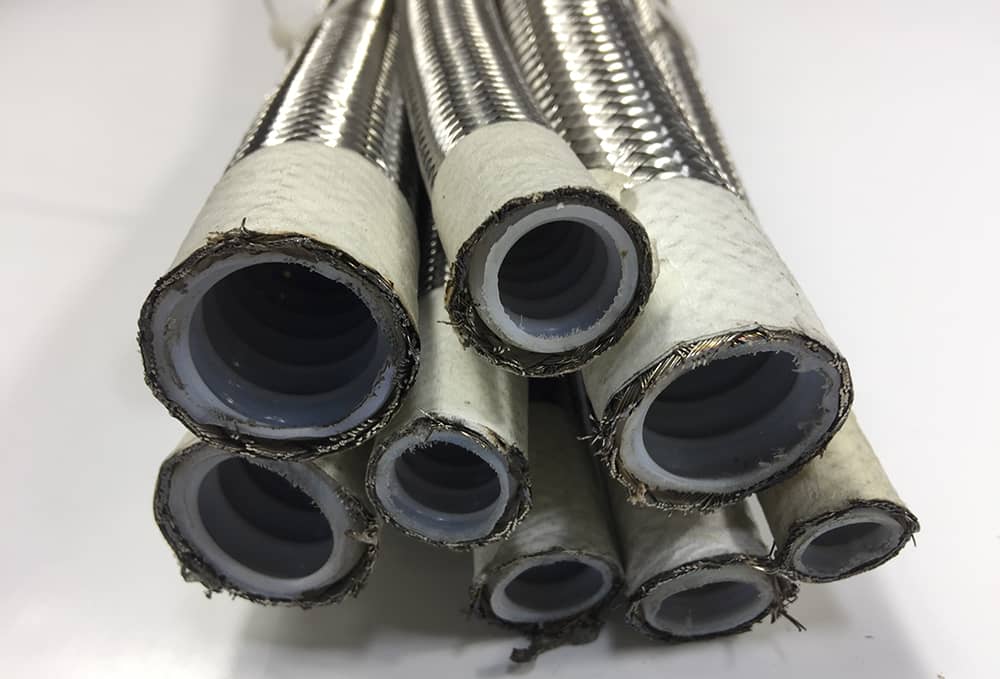Delivering chemicals requires hoses that resist corrosion, leaks, and degradation. Not all hoses work—only specialized chemical hoses handle acids, solvents, fuels, and corrosive fluids. The right choice depends on the chemical type, pressure, and temperature. Below are the most reliable chemical hose options.
1. PTFE Lined Chemical Hoses: Universal Performers
PTFE lined chemical hoses are the gold standard for versatility. They resist nearly all chemicals, from strong acids to harsh solvents. The smooth PTFE inner liner prevents chemical absorption and buildup. These chemical hoses work for both high and low temperatures (typically -40℉ to 400℉). They suit industrial, laboratory, and pharmaceutical applications. Reinforced with braided stainless steel or synthetic fibers, they handle moderate to high pressure.

2. Rubber Chemical Hoses: Targeted Corrosion Resistance
Rubber chemical hoses use specialized rubber compounds for specific chemicals. EPDM rubber chemical hoses excel with acids and alkalis. Nitrile rubber variants handle oils, fuels, and petroleum-based chemicals. Neoprene rubber resists solvents and oxidizing agents. These hoses are flexible, durable, and cost-effective. They work well for low to medium pressure and ambient temperatures. Always match the rubber compound to the chemical for safety.
3. Polyurethane Chemical Hoses: Lightweight & Durable
Polyurethane chemical hoses offer a balance of flexibility and resistance. They stand up to mild acids, bases, and some solvents. These hoses are lighter than rubber or PTFE options, making them easy to handle. They resist abrasion and tearing, ideal for mobile or outdoor chemical delivery. They perform best at moderate temperatures (-20℉ to 150℉) and low to medium pressure.
